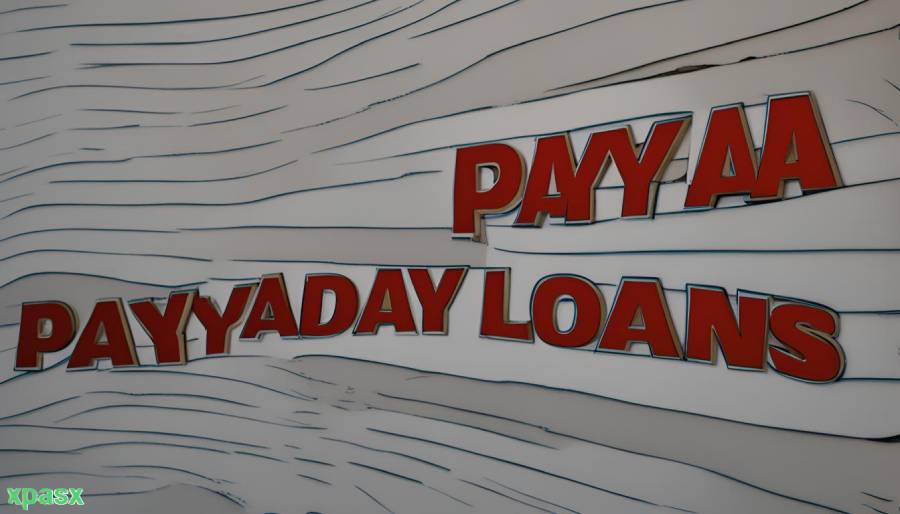Introduction
In today’s fast-paced world, unexpected expenses can arise at any moment, leaving many individuals scrambling for immediate financial relief. Enter payday loans—a popular but often misunderstood option for those in need of quick cash. While these short-term loans can provide much-needed funds in emergencies, they also come with risks and high-interest rates that can lead to a cycle of debt. In this article, we’ll explore the ins and outs of payday loans, helping you understand their advantages, pitfalls, and alternatives to make informed financial decisions.
To explore more options, visit the loan on xpasx for detailed information.
What Are Payday Loans?
They are short-term, high-interest loans typically designed to cover urgent expenses until the borrower receives their next paycheck. These loans are often easy to obtain, requiring minimal documentation and a quick application process. Lenders usually do not perform extensive credit checks, making them accessible to individuals with poor credit histories. This convenience can make payday loans appealing for those facing unexpected bills or emergencies.
However, borrowers should understand the terms associated with pthem, including repayment timelines and fees. The loan amount usually ranges from a few hundred dollars to a couple of thousand, with repayment typically due on the borrower’s next payday. This structure can lead to a cycle of borrowing if the borrower is unable to repay the loan in full, resulting in additional fees and increased debt.
How Payday Loans Work
Payday loans operate on a simple premise: borrow a small amount of money quickly and repay it on your next payday. The application process usually involves filling out a form, providing proof of income, and sometimes offering a post-dated check or electronic access to a bank account as collateral. Lenders often charge a flat fee for the loan, which can be exorbitantly high relative to the amount borrowed.
Repayment is typically due in one lump sum, which can be a significant financial burden for borrowers. If they cannot repay the loan by the due date, they may need to take out another payday loan to cover the first, leading to a dangerous cycle of debt. This cycle underscores the importance of fully understanding the loan’s terms before proceeding, as failing to repay on time can result in escalating fees and further financial distress.
Pros of Payday Loans
One of the main advantages of them is their speed and convenience. In situations where you need cash quickly—such as an emergency medical bill or urgent car repairs—payday loans can provide immediate access to funds. The application process is usually quick, with many lenders offering online applications that allow you to apply from the comfort of your home.
Additionally, payday loans typically have fewer qualification requirements compared to traditional loans. Borrowers do not need to have good credit scores, making these loans an option for individuals who may not qualify for other forms of credit. This accessibility can be beneficial in urgent situations where traditional financial resources are not available.
Cons of Payday Loans
Despite their advantages, payday loans come with significant drawbacks. The most prominent issue is their high interest rates. Lenders often charge fees that can translate to an annual percentage rate (APR) of several hundred percent. This makes them one of the most expensive borrowing options available.
The repayment structure also poses challenges. Since payday loans are typically due in a short period, borrowers may struggle to gather the funds needed to repay the loan. If unable to pay in full, they may resort to rolling over the loan, which incurs additional fees, further compounding their financial burden. This cycle can lead to a dangerous debt trap, where borrowers find themselves in a constant state of needing new loans to pay off previous ones.
Alternatives to Payday Loans
Given the risks associated with them, exploring alternatives is crucial. One option is personal loans from credit unions or banks, which often have lower interest rates and more flexible repayment terms. Unlike payday loans, personal loans typically require a credit check and longer approval processes, but they can provide a more manageable financial solution.
Another alternative is borrowing from family or friends. While this option may come with its own set of complications, it can offer a more lenient repayment structure and potentially no interest at all. Additionally, consider local community assistance programs or non-profit organizations that may offer financial aid or interest-free loans for those in need.
The Role of State Regulations
The regulation of payday loans varies widely from state to state. Some states have enacted laws to protect consumers from predatory lending practices, capping interest rates and limiting loan amounts. For example, some states may restrict the maximum APR a lender can charge, while others may prohibit payday lending altogether.
These regulations aim to balance access to credit with consumer protection. However, in states with fewer regulations, payday lenders may charge exorbitant fees and operate without oversight, leading to increased financial risk for borrowers. Understanding your state’s laws can help you make informed decisions about whether a payday loan is a viable option for you.
The Impact of Payday Loans on Credit
One of the common misconceptions about payday loans is that they do not affect credit scores. While payday loans are generally not reported to credit bureaus, the associated fees and inability to repay the loan on time can lead to collections actions, which can negatively impact your credit score. Furthermore, many payday lenders may employ collection agencies to recover unpaid debts, which can result in damaging your credit history.
In some cases, obtaining a payday loan can lead to financial behavior that negatively impacts credit scores. Borrowers who consistently rely on payday loans may struggle with managing their overall debt, leading to missed payments on other financial obligations. This can create a domino effect, making it increasingly difficult to secure traditional loans or credit in the future.
Tips for Using Payday Loans Responsibly
If you find yourself in a situation where a payday loan seems necessary, it’s essential to approach it responsibly. First, ensure you fully understand the loan terms, including interest rates and repayment dates. Take the time to read the fine print and ask questions if anything is unclear.
Create a realistic repayment plan that fits your budget. If you’re unable to repay the loan in full by the due date, consider contacting your lender to discuss potential options. Some lenders may offer extensions or payment plans that can alleviate the immediate financial burden without incurring additional fees. Ultimately, being proactive and informed can help mitigate the risks associated with payday loans.
Next, head over to the Payday Loans section for specific guidance tailored to your needs.
The Social Perception of Payday Loans
Payday loans often carry a stigma, with many people viewing them as a last resort for financially irresponsible individuals. This perception can discourage borrowers from seeking help or exploring their options. However, it’s important to recognize that financial emergencies can happen to anyone, and They may serve as a necessary solution in specific situations.
Raising awareness about the realities of payday loans, including their benefits and risks, can help shift the conversation. Encouraging open discussions about financial literacy and responsible borrowing can empower individuals to make informed decisions that align with their financial goals.
Conclusion: Making Informed Choices About Payday Loans
As we’ve explored throughout this article, payday loans can provide immediate relief for urgent financial needs but come with considerable risks. Understanding the nature of these loans, the potential pitfalls, and the available alternatives is crucial for making informed financial decisions.
Ultimately, whether to pursue a payday loan should be a well-considered choice based on your financial situation, repayment capability, and willingness to accept the associated risks. By approaching payday loans with caution and awareness, you can navigate your financial needs more effectively and avoid falling into a cycle of debt.
Conclusion
In conclusion, payday loans can offer a lifeline during financial emergencies, but they are not without significant risks. It’s crucial to weigh the benefits against the potential for falling into a cycle of debt due to high fees and interest rates. Before opting for a payday loan, consider exploring alternative solutions, such as personal loans or local assistance programs. Ultimately, being informed and cautious will empower you to make better financial choices and avoid unnecessary hardships.
For more insights on payday loans and alternative financial solutions, visit xpasx. Empower yourself with the information you need to make informed financial decisions!


